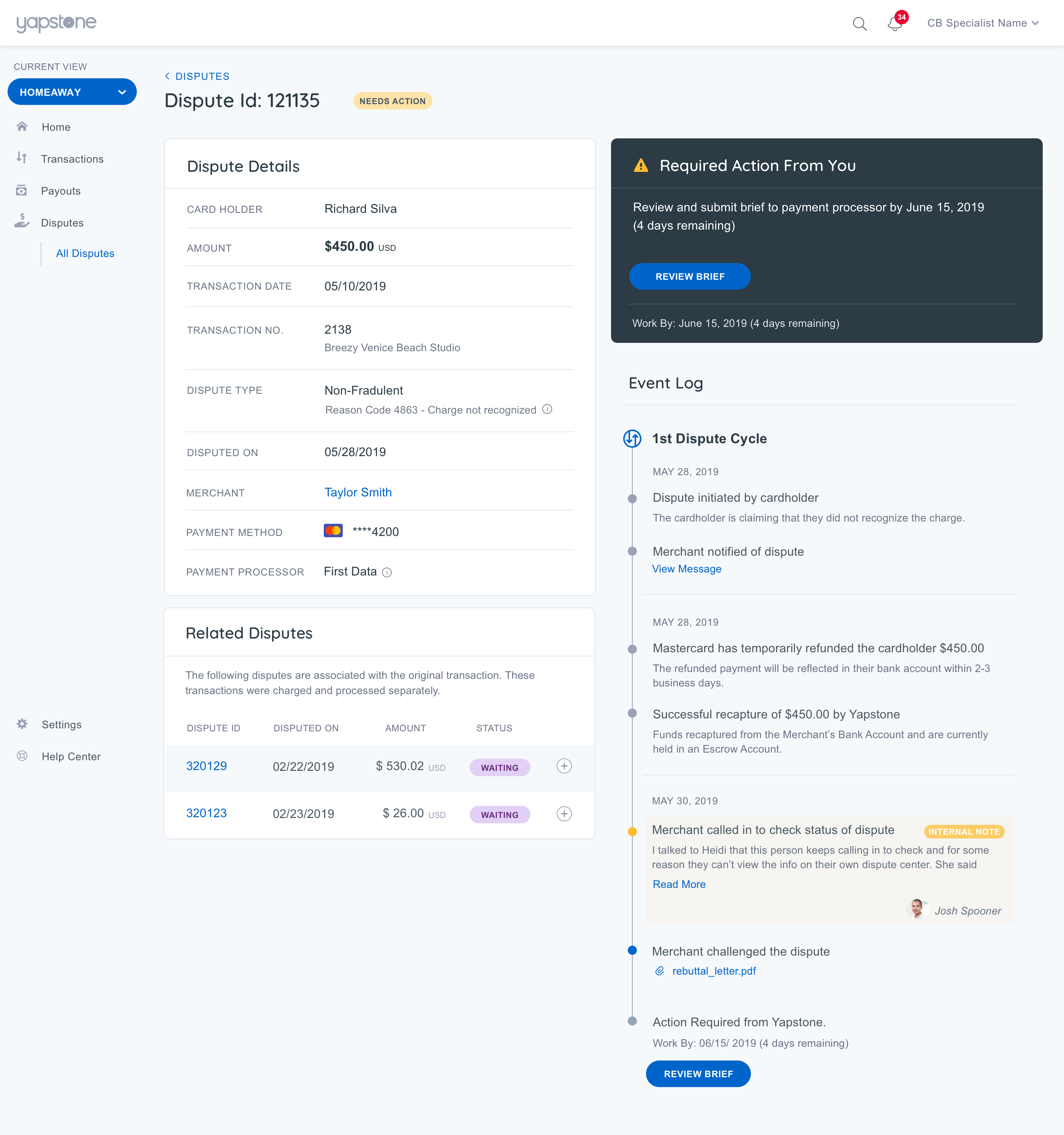Yapstone Dispute Center
Dec 2, 2019 // Work
Tech Used → React // TypeScript // CSS-in-JS // Emotion // GraphQl // AWS // CloudFormation

Yapstone is a large API based payment gateway that's been around for more than 18 years. As part of their new product offering, Transact, they wanted to make a better experience for merchants and agents to deal with the credit card chargeback process.
The chargeback process involves a lot of parties when it comes to disputing a chargeback. In most cases, there's the merchant – the person who receives the chargeback on their card, the payment gateway – Yapstone, and the payment processor – Visa, American Express, or Mastercard. In order for a merchant to dispute a chargeback, there needs to be enough evidence collected by the merchant to present their case to the payment processor. In order to help merchants, Yapstone currently has a team of chargeback specialists to assist customers to compile and submit their evidence to the payment processor.
Previously, the evidence collection and communication between the chargeback agents and the merchants were all done via email with Zendesk. Then, agents were instructed to manually download all the evidence and merge them together in a PDF file. Finally, they would upload the final file to the payment processor for review.
To streamline this process, we designed and built an experience where the merchant could upload their evidence themselves, and preview their rebuttal letter PDF in the browser before submitting it to the agent to review. This moved the onus of evidence collection onto the merchant and cut down the agent's time spent on manual merging documents together. Unfortunately, the payment processors don't let you upload the final file via an API so this had to still be manually reviewed by the chargeback agents.
Our experience was a Create React App that we hosted on S3 and cached at the edge with Cloudfront. We used Yapstone's Transact APIs to manage the dispute workflow and the UI state. We read data from their GraphQL API built off of Elasticsearch, and updated the disputes using their RESTful dispute microservices.